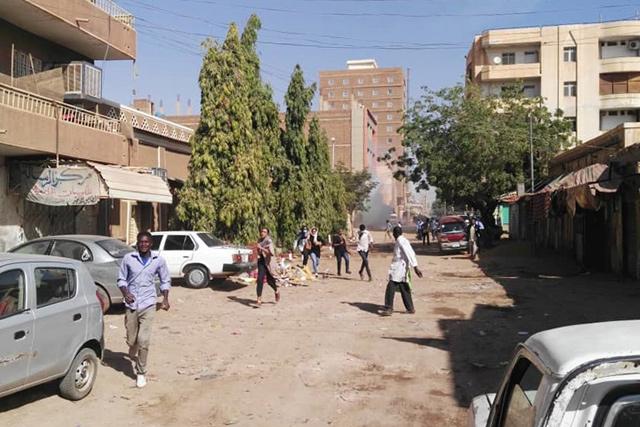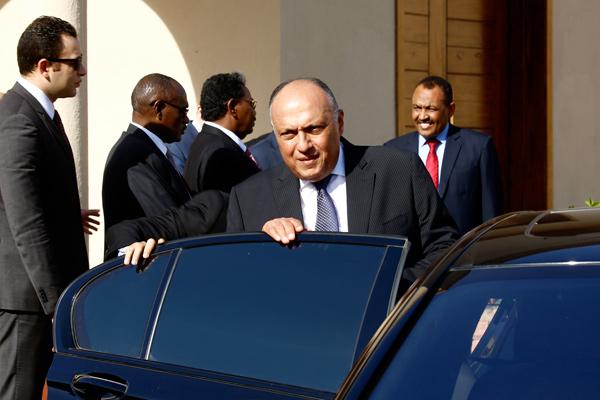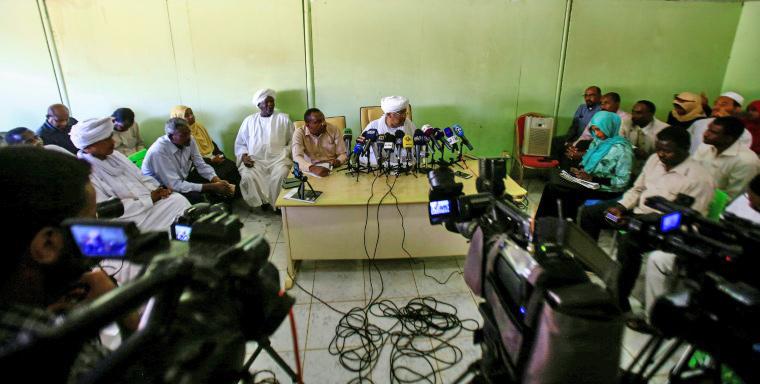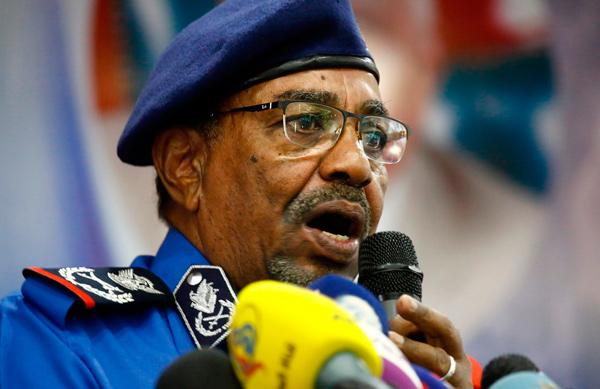You are here
Sudan riot police stop march on presidential palace
By AFP - Dec 31,2018 - Last updated at Dec 31,2018

Protesters run away from tear gas smokes during a demonstration in Khartoum, Sudan, on Monday (AFP photo)
KHARTOUM — Sudanese riot police fired tear gas at demonstrators in the capital Khartoum on Monday, dispersing protesters who had planned to march on the presidential palace following deadly anti-government rallies.
Crowds of men and women chanting ‘‘freedom, peace and justice’’ and ‘‘revolution is the people's choice’’ gathered in downtown Khartoum, but they were quickly confronted by police, witnesses told AFP.
Demonstrators gathered in groups in and around the downtown area, but were unable to converge to march towards the palace of President Omar Al Bashir.
As police fired tear gas, protesters were seen taking refuge in small lanes of the capital's usually busy business district, which was deserted on Monday.
Most shops and businesses in downtown Khartoum were shut ahead of the planned march.
Monday's march was called by a group of professionals including doctors, teachers and engineers, who organised a similar rally on December 25.
‘‘We will march towards the presidential palace calling for President Omar Al Bashir to step down,’’ the Sudanese Professionals' Association said in a statement late Sunday.
Opposition groups and prominent rebel chief Abdel Wahid Al Nur from war-torn Darfur had also urged their supporters to participate in the demonstration.
Hundreds of police officers and security forces deployed to key squares across the capital in the early morning to prevent the march.
Bashir has told police to abstain from using excessive force against the demonstrators after 19 people, including two security personnel, were killed in clashes in the initial days of demonstrations that erupted on December 19.
Rights group Amnesty International says 37 people have been killed in protests so far.
Angry protesters first took to the streets after the government raised the price of a loaf of bread from one Sudanese pound to three (from about two to six US cents).
Bread price protests quickly evolved into anti-government rallies in Khartoum and several other cities.
On Sunday, Bashir met top police officers in Khartoum and instructed them to use ‘‘less force’’ against demonstrators after the United Nations called for an investigation into the deaths and violence during the rallies.
‘‘We admit that we have economic problems... but they can't be solved by destruction, looting, and theft,’’ Bashir said, referring to buildings and offices of the president's ruling party torched by protesters in several cities.
Later on Monday he said he was ‘‘confident of overcoming the economic challenges’’ as he delivered a speech to mark Sudan's 63rd independence day on January 1.
‘‘I'm calling upon all political groups... to come up with proposals and measures to help tackle economic issues,’’ Bashir told a gathering of government officials, foreign diplomats and journalists at a function at the presidential palace.
Sudan is facing an acute foreign exchange crisis and soaring inflation despite Washington lifting an economic embargo in October 2017.
The foreign exchange crisis has steadily escalated since Sudan's partition in 2011, when South Sudan took away the bulk of oil earnings.
Inflation is currently running at 70 per cent and the Sudanese pound has plunged in value, while shortages of bread and fuel have regularly hit several cities.
UN Secretary General Antonio Guterres has appealed ‘‘for calm and restraint’’ and called on ‘‘the authorities to conduct a thorough investigation into the deaths and violence’’.
Related Articles
KHARTOUM — Egypt's foreign minister on Thursday voiced support for Sudan's embattled government, as Khartoum grapples with demonstrations ag
KHARTOUM — A network of Sudanese journalists went on strike on Thursday in the wake of deadly protests sparked by a hike in bread price
KHARTOUM — Sudan's President Omar Al Bashir on Sunday told police to abstain from using excessive force against anti-government demonstrator














